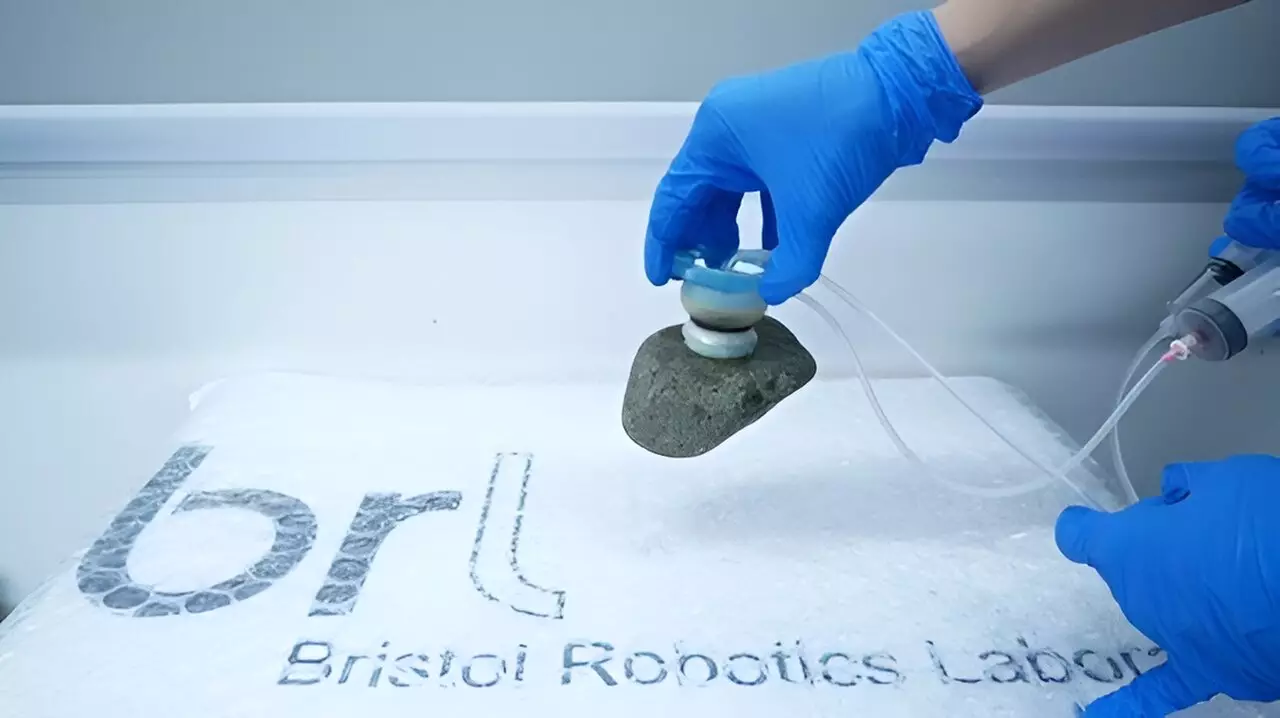The recent development of a robotic suction cup at the University of Bristol has taken inspiration from the adaptive suction abilities of octopus biological suckers. These structures have the remarkable capability to anchor onto rough, curved, and heavy surfaces, such as rocks. The team at Bristol Robotics Laboratory delved deep into the structures of these biological suckers to understand how they achieve such strong grasping abilities and applied their findings to the creation of a new robotic suction cup.
The researchers focused on replicating the multi-layer soft structure and artificial fluidic system found in biological suckers. By mimicking the musculature and mucus structures of these natural suckers, they were able to develop a innovative suction cup that can adaptively attach to dry complex surfaces like rocks and shells. The ability of biological suckers to conform to surface shapes and secrete mucus for improved adhesion served as a crucial foundation for the development of the new robotic suction cup.
Lead author Tianqi Yue highlighted the importance of combining mechanical conformation and liquid seal in their suction cup design. The multi-scale suction mechanism utilizes soft materials to conform to surface shapes, while the regulated secretion of water seals any remaining apertures, ensuring long-lasting and strong suction on various surfaces. This innovative approach is a significant step towards developing versatile soft adhesion solutions that can outperform current industrial practices that rely on noisy and energy-wasting air pumps.
The implications of this research extend far beyond the realm of academia, with potential applications in industrial settings. The new robotic suction cup has the potential to revolutionize gripping technology for grasping irregular objects in a variety of industries. By embedding sensors into the suction cup to regulate its behavior, the team aims to further enhance the intelligence and adaptability of the device, paving the way for more advanced robotic grippers in the future.
The development of this new robotic suction cup represents a significant advancement in bio-inspired engineering. By drawing inspiration from the remarkable abilities of biological suckers, the researchers at the University of Bristol have successfully created a cutting-edge technology that has the potential to revolutionize industrial gripping applications. The fusion of mechanical conformation and liquid seal in the design of the suction cup offers a powerful new adaptive suction strategy that could pave the way for further innovations in soft adhesion technology.


Leave a Reply
You must be logged in to post a comment.